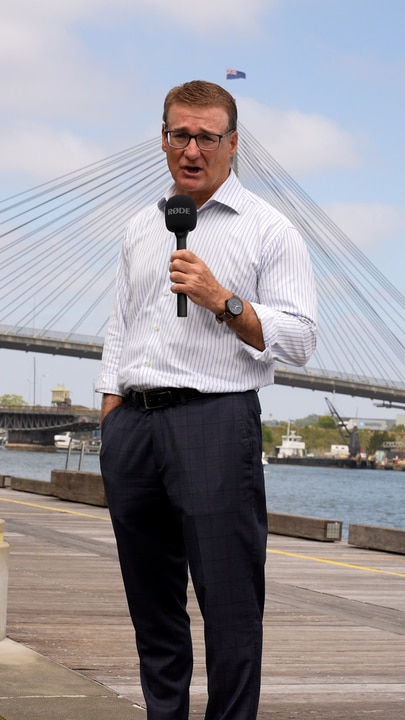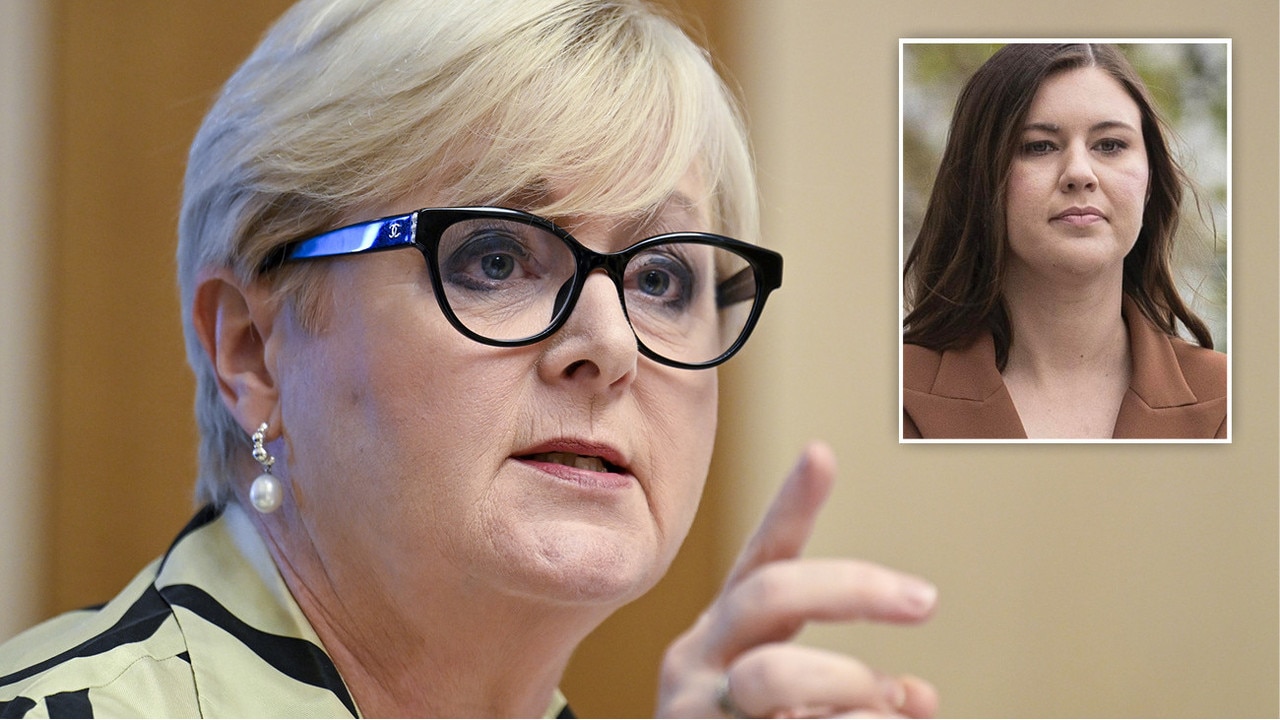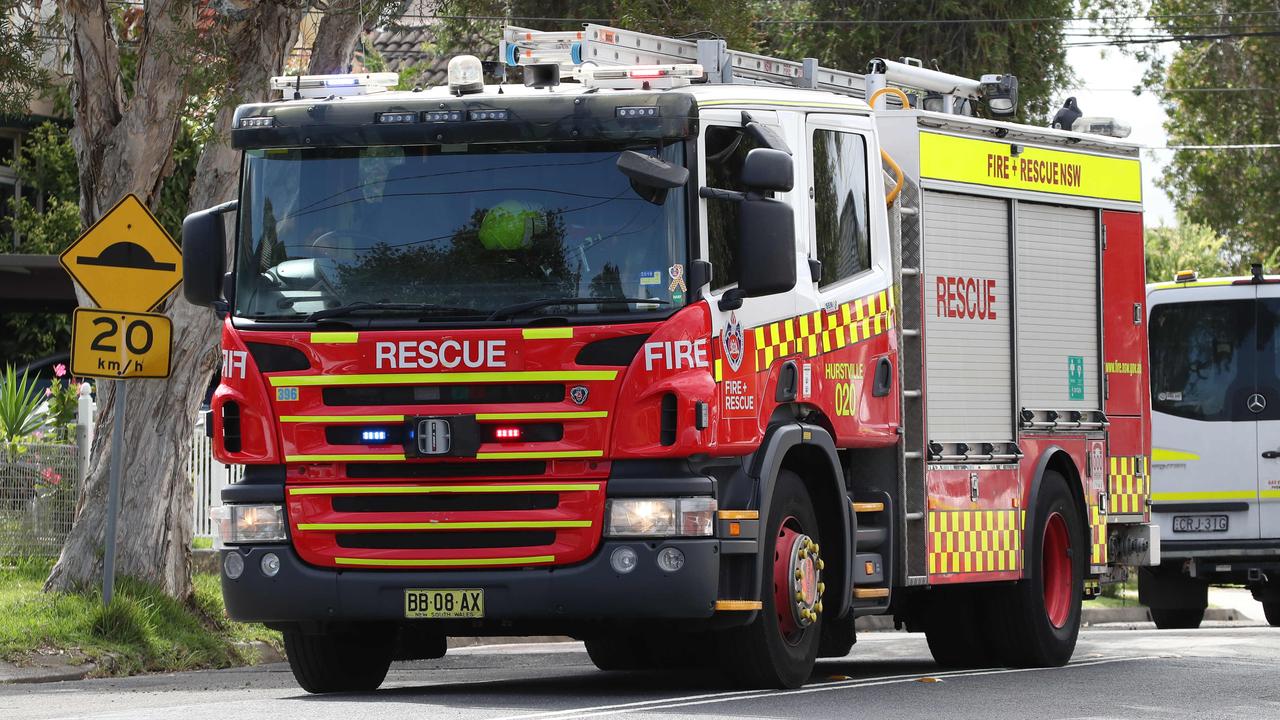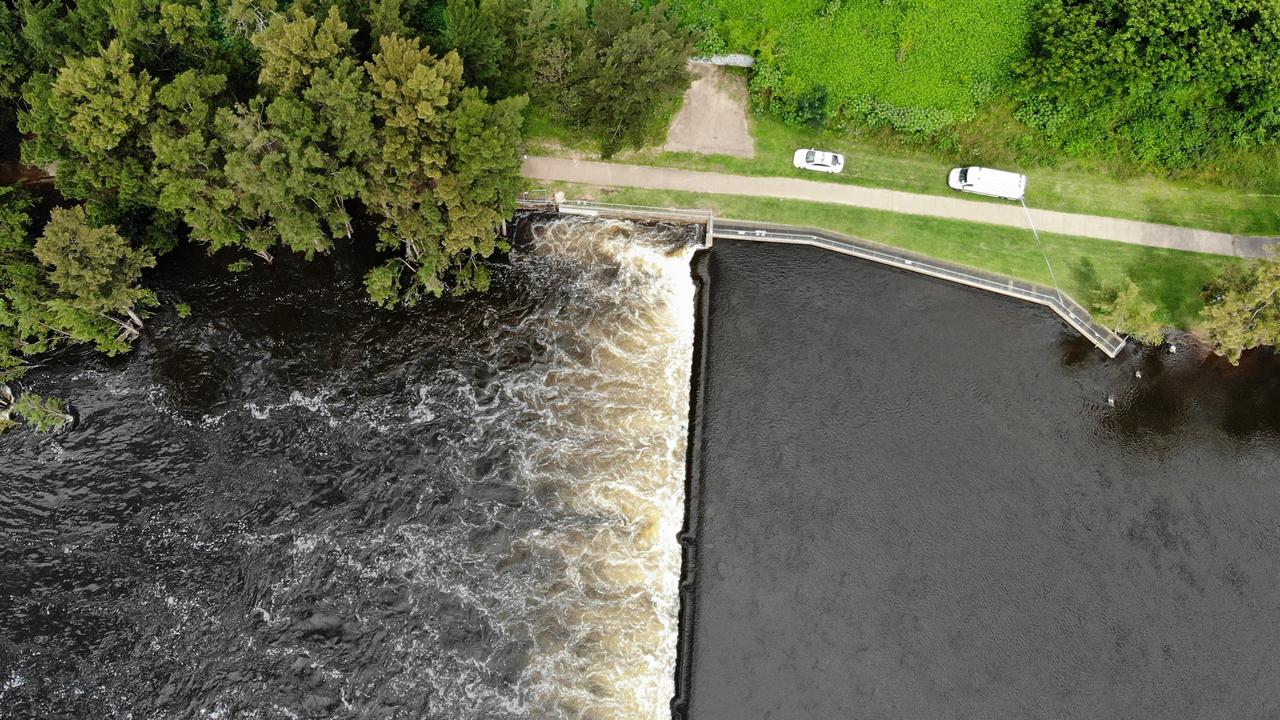Sydney’s last working port could be critical to our national security
A new report says Glebe Island port could be critical to our national security if there were future military conflicts or natural disasters. But supporters of the port need to convince the NSW Government not to close the facility.

NSW
Don't miss out on the headlines from NSW. Followed categories will be added to My News.
Glebe Island could be crucial to national security if Australia confronts future military conflicts or a natural disaster, according to an independent report into Sydney Harbour’s last working port.
While the NSW Government considers wiping out the facility to make way for high-rise apartments, analysis from consultancy firm Urbis talks of strategic as well as economic benefits on offer at Glebe Island.
The Urbis review says the port operations “could be critical to Sydney’s maritime security”.
It reads in part: “Glebe Island’s location offers quick access to central Sydney, which could be vital for disaster response, military mobilisation, or law enforcement in the face of maritime threats.

“Without a functioning port, logistical challenges would arise for emergency maritime operations, such as deploying Australian Defence Force assets for disaster relief.
“Furthermore, the Royal Australian Navy operates from Garden Island but lacks a commercial backup port, reducing its flexibility to support naval logistics during emergencies.
“The closure of Glebe Island would leave Sydney dependent on Port Botany, primarily a container port, and Newcastle, which is over 150 km away.
“In the event of a security crisis, if Port Botany were disrupted, there would be no nearby alternative for rapid maritime resupply, potentially impacting logistics for fuel, food, and construction materials critical for economic resilience and emergency responses.”
Glebe Island has a military history. At the outbreak of World War II, the port became a major armaments and engineering supply depot for US forces in Australia, with the majority of the island commandeered by the Americans.
It became the principal staging area for thousands of US troops while Australian soldiers also headed overseas from Glebe Island and White Bay. The US Navy was a principal tenant at White Bay.
A small memorial stands on Glebe Island “commemorating the first landing of US Armed Forces at the Port of Sydney on 28th March 1942”.
Business Sydney Executive Director Paul Nicolaou is a member of the Working Port Coalition – a group of 24 stakeholders from myriad sectors fighting to keep Glebe Island’s operations intact – and says government needs to remember the past.

“We should never forget our history because it keeps reminding us of what should be our current priorities,” he said.
“The near forgotten war memorial at Glebe Island is both a reminder and a commemoration of the 1 million Americans who arrived in Sydney during WWII along with 5 million tons of military arms and equipment.
“As the future use of Glebe Island – Sydney Harbour’s only remaining deep water working port – is considered, it is important to note that an economic value study commissioned by the … coalition refers to the port’s importance to defence and maritime security.”
The Minns Government is looking at ending 150 years of operations at Glebe Island – and closing a port central to Sydney’s trade network – in order to maximise residential development around a Bays metro station planned to open in 2032.
But Urbis also claims the NSW housing crisis could deepen if the port is lost because additional freight charges to truck materials from Port Kembla or Newcastle would significantly increase construction costs.

They additionally forecast that any residential development is unlikely to be delivered before 2037.
The latest Glebe Island revelation comes in the wake of Opposition Leader Peter Dutton announcing that a Coalition win in the May 3 election will see the Port of Darwin returned to Australian control – ending the lease over land and operations currently held by Chinese-based interests.
In outlining the Coalition’s national security vision for Australia, Mr Dutton said the country confronted a “far more uncertain and dangerous world today than at any time in recent memory”.
He referenced an “imperialistic Putin” who seemed “determined to swallow up Ukraine” and a Chinese Communist Party continuing to assert itself “militarily in our region and across the world”.
Mr Dutton also vowed a Coalition government would lift defence spending as a share of Gross Domestic Product.
The NSW Government was contacted for comment.
More Coverage
Originally published as Sydney’s last working port could be critical to our national security








